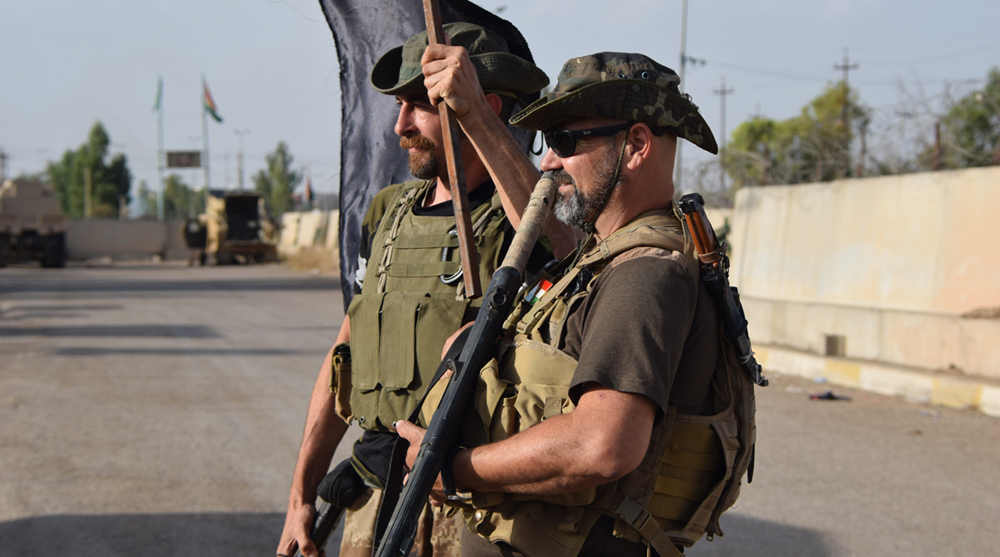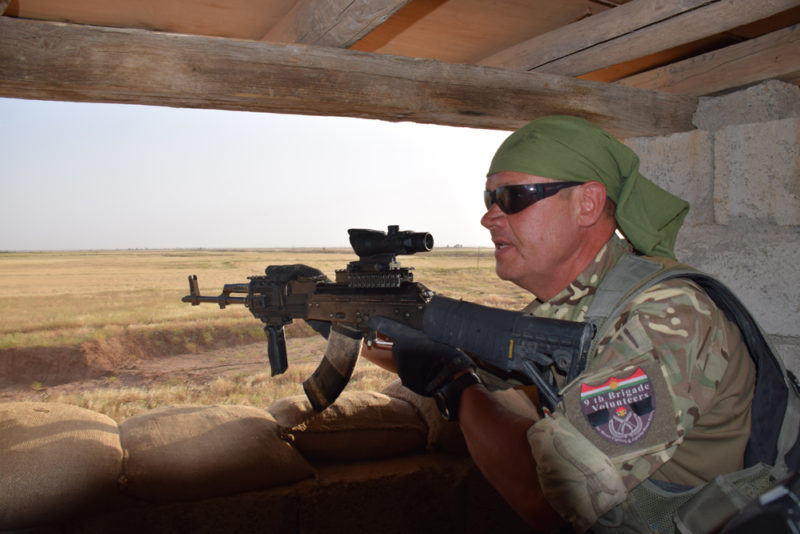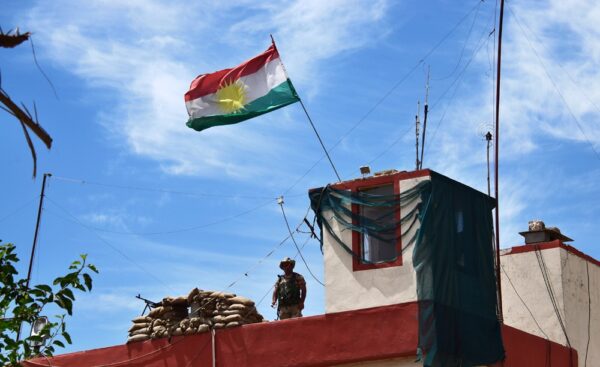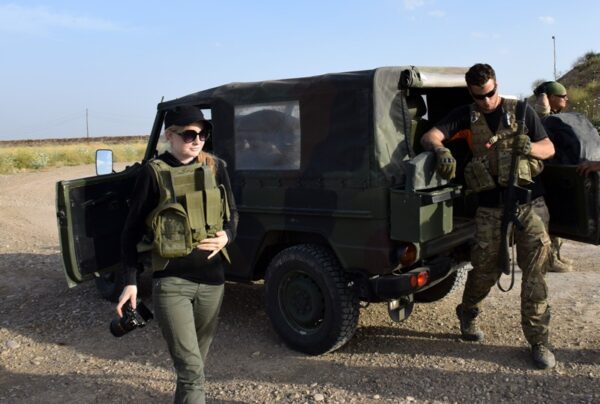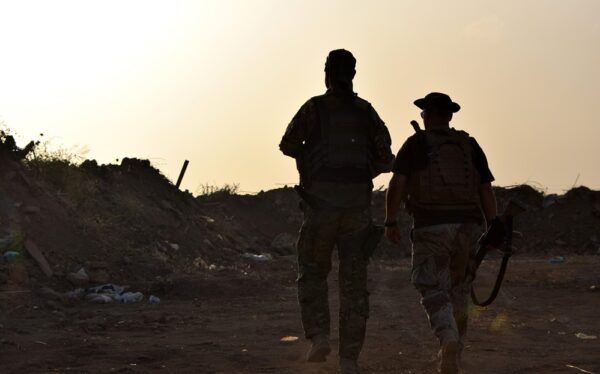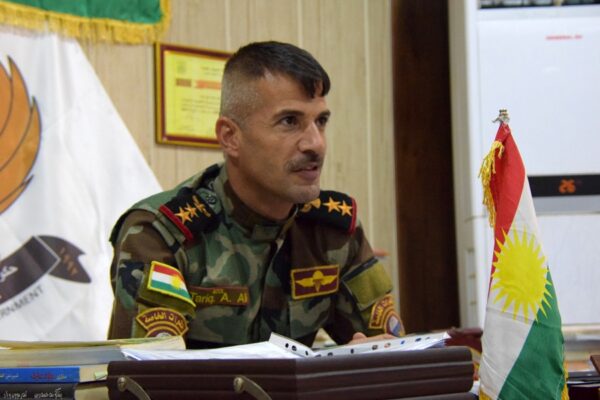Volunteers Against the Islamic State
Volunteers from all over the world are joining the fight against the terrorist army who call themselves the Islamic State. Free West Media visited the frontlines at Daquq, northern Iraq, where Tony from Sweden is one of those assisting Kurdish troops in liberating the area from the Islamists' reign of terror.
Published: June 26, 2016, 11:00 pm
− We are encircling them, slowly but surely. That’s what you’ve got to do. They’re not a regular army, more like vermin. If you let them through they’re just gonna pop up somewhere else. Right now they’re popping up in Libya a lot, and I’m thinking of going over to face them there as well. But I’d prefer to see them defeated here before then.
Tony lights a cigarette and looks across the gravel-covered yard lined by soldier barracks, cement block walls, three large water tanks and the main building topped by a machine-gun nest. Across the yard, some military vehicles are parked.
We are at a military outpost in Daquq. Around fifty kilometres to the north lies the strategically and economically important city of Kirkuk, which several of the region’s military powers want to claim as theirs. For now, it is controlled by the autonomous region if Iraqi Kurdistan and its military force, the Peshmerga, which is also one of the key players in the fight against the terrorist organization that calls itself the Islamic State. Here, it is commonly referred to as Daesh, an Arabic acronym for “Islamic State of Iraq and the Levant”, but which the terrorists themselves detest because it sounds almost like words meaning “sowers of discord” and “one who crushes underfoot”. In the areas controlled by the terrorists, they reportedly have vowed to cut off the tongue of anyone caught calling them Daesh.
Thousands of Sunni Muslims who have made Europe their home have been radicalized and went on to join Daesh. Lately, however, more and more westerners are also teaming up with the Peshmerga to fight the Islamists at their home turf.
Tony from Sweden is one of these fighters. At the moment, they are only four foreign soldiers at the outpost in Daquq − one American, two Spaniards, and Tony himself − after five Americans and one Frenchman left the day before. Tony explains that the reason is an incident while they were clearing out debris in an abandoned building that used to be a base for Daesh.
− After a few hours of hard work, everyone was covered in dust. That’s when they found some kind of container that made them think Daesh had been making chemical weapons in the room they had been clearing out. So they got very worried about the dust they were covered in, and went to the American embassy in Erbil to have it analyzed. We haven’t heard from them since, says Tony.
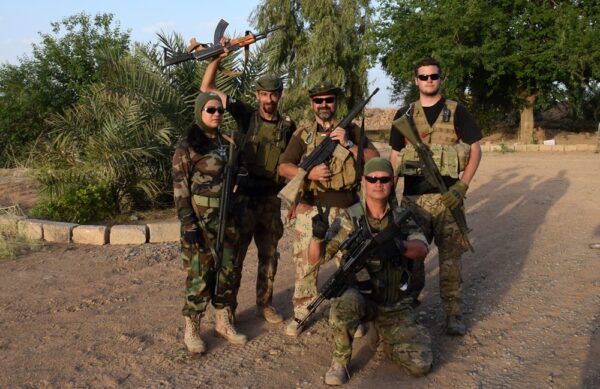
Volunteers in Kurdistan, northern Iraq. Volunteers from the United States, Spain, France and Sweden join the battle against Islamic State in Iraq. In the back row to the right stands the US Marine Corps soldier Joey, and sitting down is Tony from Sweden.
Fights against Daesh
When the city of Sinjar was recaptured from Daesh in November, Tony was there as a soldier on the Kurdish side. The offensive was launched after several weeks of fighting while the Peshmerga and their allies in the PKK held only a small part of the city. Tony explains that he was caught up in a Daesh counterattack only twenty minutes after his arrival in Sinjar.
− We returned fire and started doing our job, says Tony.
Apart from witnessing the atrocities committed by Daesh against Sinjar’s civilian population − the same mass graves that Nya Tider documented during our visit to the city in February − the fighting was intense for a while. Among other things, Tony tells us of a Peshmerga soldier whose foot was almost severed by a splinter from a grenade.
− He had taken cover, but his foot was sticking out and it got hit. It was cut from the heel and some inches forward, so that it was sort of hanging loose. But he didn’t complain when we got there to extract him, not a peep of pain. One tough son of a bitch. We had to run through a hail of bullets to get him to a pickup, returning fire as we ran, says Tony.
Sinjar was also the closest Tony ever came to dying himself.
− As I was keeping guard, Daesh fired an RPG at me. It missed by a few metres and hit a wall maybe thirty metres away, sending mortar and stuff flying. You aren’t really afraid of dying, more of getting injured and unable to fight, Tony explains.
Tony tells us that there are two things that make Daesh a dangerous enemy: they are fanatics, and they excel at psychological warfare, especially at making themselves appear more numerous and dangerous than they really are. At Sinjar, for instance, they were heard talking on the radio about putting on their body armor and launching a massive counterstrike. When the attack came, it took a while for the Peshmerga to realize that they were actually few in number and weren’t even equipped with body armor.
− They can also come at you in a single file and suddenly form a line so that they appear many. They may stir up dust so you don’t see that there is only a single, thin line. They’re good at those things.
The fanaticism of many Daesh terrorists is also a factor that make them difficult to protect against. In a combat situation, defence against suicide bombers is relatively easy − a combatant who gets close enough to kill you by blowing himself up has already gotten a lot closer than he is supposed to − but it’s harder when the attack is sudden and unexpected. Their fanaticism also make them unpredictable as they don’t play by any rules. Any army has at least some scruples against using too brutal methods of torture or using civilians as shields, but not Daesh.
− You just can’t fight them like you do a regular army. If you play too nicely, you’re setting yourself up to lose. You’ve got to fight fire with fire here; they simply need to be exterminated. If that sounds harsh, then fine − if you voluntarily join a sect known for cutting the heads off civilians, taking women as sex slaves, and burning people alive, then that’s what you deserve as far as I’m concerned. You made your choice when you joined them, Tony says.
Just a week prior to Free West Media’s arrival, Tony took part in another assault that garnered some attention, as Daesh was driven from the town of Bashir, one of their strongest footholds in the Kirkuk province. After the town was bombed by the Nato-led coalition, the Peshmerga and their allies started clearing it out.
− The Coalition bombed the place before we went in and recaptured it, together with the Shia militia. Maybe I should say “for the Shia militia”, as we did the hard part and basically handed it over to them, but they did their part as well. Afterwards, us and them were smiling and slapping each others backs, which felt kind if strange considering we had been shooting at each other some days before, but maybe it improved the situation a bit for now, says Tony.
The Shia militna al-Hashd al-Shaabi, supported by Iran, is a problematic ally for the Kurds, because the Shiites consider Kirkuk to be Arab territory, while the Kurds think it’s a part of Kurdistan. This leads to constant tension between them, despite having Daesh as a common enemy. In late April, the Shia militia shot and killed a Peshmerga general and wounded three others about twenty minutes drive from the outpost we are at. The next day, the Peshmerga responded in kind, wounding around twenty of them. The fragile alliance has been stabilized for the moment, but in the long run, there is little hope for lasting peace between the current allies. Only minutes before Nya Tider’s arrival, Tony heard gunfire and briefly thought a skirmish had broken out, but it turned out to be a wedding celebration.
The Peshmerga lost around thirty of the 2,000 troops that took part in the assault on Bashir, while Daesh losses were considerably higher. After losing Bashir, the terrorists retreated to their stronghold at Hawija. They also dug themselves in at several villages on the countryside, where they probably enjoy the support of a part of the civilian population. At the moment of writing, Tony and the other volunteers are waiting for orders to start clearing out the villages and advancing in Hawija.
− We expect they will make some sort of counterattack, they need to flex their muscles a bit to boost their morale after this. But we can’t sit around waiting for that, says Tony.
The volunteer soldiers
People all over the world support the fight against Daesh, but only a few choose to join the actual battles against them. We try to find out what motivates these volunteer soldiers. At first, Tony jokes around and says they’re simply “a bunch of bloodthirsty types wanting to kill some people”, but then he gets more serious.
− I’ve always been drawn to the military life. That’s considered a bad thing in the sissy Sweden of today, of course, but it’s true nonetheless. There is also a sense of duty, as well as frustration that no one seems to do very much against what is in my eyes pure evil. Nato could obliterate Daesh in a matter of weeks if they really wanted to.
The same sense of duty and prior military experience is true for Joey, a 23 year old American who shares Tony’s barrack. Despite his youth, Joey has served four years in the Marines, having joined at 17 with his parents’ permission. After his time in the Marines, he has done some college studies, but says he finds it hard to relate to students who have only known the comforts of civilian life.
− I felt a moral duty to try to do something about all this. With my past experience, if they need help over there, why not go and help them?, Joey says.
Joey is still proud of the Marine Corps and his time in service, but today he thinks the American war efforts in the Middle East are more of a cause than a solution to the problems in the region. He has read a lot about the 9/11 Attacks and come to the conclusion that there is a lot of truth to the conspiracy theories that the attack was at least aided and abetted by forces inside the U.S. government, intended on pulling America into a war.
− I didn’t want to believe that about my own government, that they could do that to their own people, but the evidence is overwhelming. I don’t claim to know exactly what happened, but it was an inside job. Certain people wanted America to go to war, and we have been ever since. But today when American troops could really do some good here, they just don’t do very much, says Joey.
Tony is also critical of how Sweden’s government has handled the crisis in the region.
− They basically do everything wrong. They take care of wounded Daesh terrorists, giving them welfare allowances and benefits in Sweden so they can recover. And they are letting in enormous numbers of immigrants who seem mostly interested in welfare money, instead of helping down here where it’s really needed. When I’m at home, in Sweden, it sometimes doesn’t feel like my country anymore. Which is terrible. No one can accuse me of being bigoted − I have friends from all over the world, including some Kurds who are amazing people − but that doesn’t mean I want Sweden to be for everyone, says Tony.
The same combination of previous military experience, an appreciation of soldiery, and a sense of moral duty seems to motivate most of the Peshmerga volunteers. One of the Spanish volunteer soldiers, Juan, turns out to be devoutly Christian, seeing his fight against Daesh as a worldly good deed before entering the Franciscan Order to become a monk, which is what he intends after the war is over. Others who have joined were American and British soldiers who had trouble adapting to a civilian life, and thus joined the Peshmerga after Nato cut back their ground forces and no longer had room for them.
There have also been some with more problematic motivations, Tony tells us − people who were suspected of stealing weapons, ammunition and vehicle parts. Because a legal process would be too expensive and complicated in the middle of a war zone, they were simply expelled from the country.
− We also had a few “war tourists” who were Americans. Those turn up with fancy weapons and equipment, bragging about “smoking a few Daesh”, they refuse to obey orders or adapt, and they are gone as fast as they turned up. If things gets dangerous, they’re gone in a flash, Tony says with obvious dislike.
Tony himself is rather reticent about his military background, but explains that he did his military service in Sweden and participated in the war in Yugoslavia on the Croatian side. For a while in Iraq, he had a soldier colleague who fought on the opposite, Serbian side in that conflict. None of them saw that as problematic when they fought Daesh together. Tony is also reluctant to divulge how many, if any, Daesh terrorists he has managed to kill. However, when we notice the “ISIS Hunting Club” patch on his jacket, he tells us that it’s a group of sorts started by Western volunteers, and that among the soldiers, three confirmed kills on Daesh are considered the proper way to earn the patch. He also points out that the patch is an old one, newer versions read “Daesh Hunting Club”.
Tony is also rather well versed in the customs and traditions of the region. For starters, the little things such as not throwing leftover bread in the garbage bin, and not showing the underside of your feet or shoes to someone; but he also expounds on Kurdish historical heroes and the region’s development before and after the fall of Saddam Hussein. At the same time, he makes it very clear that he himself is Swedish, a Westerner who drinks alcohol, eats pork and so on. The Kurds also seem to respect the customs of the Westerners, despite viewing them as alien to themselves.
− You know, an officer turned up at us last autumn, explaining that someone had shot a pig. “You Westerners like pig, don’t you?”, he asked. After months of nothing but rice and beans, of course we got all fired up about that. Juan cut up that pig fast as hell, and we had grilled pork for days, Tony explains hungrily.
− If we need some message conveyed to the readers, it would be really nice if someone could donate a chicken coop or something, Joey adds. I don’t think I’ll ever have rice and beans again when I get home.
All rights reserved. You have permission to quote freely from the articles provided that the source (www.freewestmedia.com) is given. Photos may not be used without our consent.
Consider donating to support our work
Help us to produce more articles like this. FreeWestMedia is depending on donations from our readers to keep going. With your help, we expose the mainstream fake news agenda.
Keep your language polite. Readers from many different countries visit and contribute to Free West Media and we must therefore obey the rules in, for example, Germany. Illegal content will be deleted.
If you have been approved to post comments without preview from FWM, you are responsible for violations of any law. This means that FWM may be forced to cooperate with authorities in a possible crime investigation.
If your comments are subject to preview by FWM, please be patient. We continually review comments but depending on the time of day it can take up to several hours before your comment is reviewed.
We reserve the right to delete comments that are offensive, contain slander or foul language, or are irrelevant to the discussion.

Swedish Weapon Takes Down Russia’s Best Attack Helicopter
The Russian attack helicopter Ka-52 is considered one of the world's best and has struck fear in Ukraine, where it has hunted down tanks and other armored vehicles, often beyond the range of many light anti-aircraft systems. However, it has met its match in the Swedish air defense missile system RBS 70, which has quickly led to significant losses for the Russian helicopter forces.
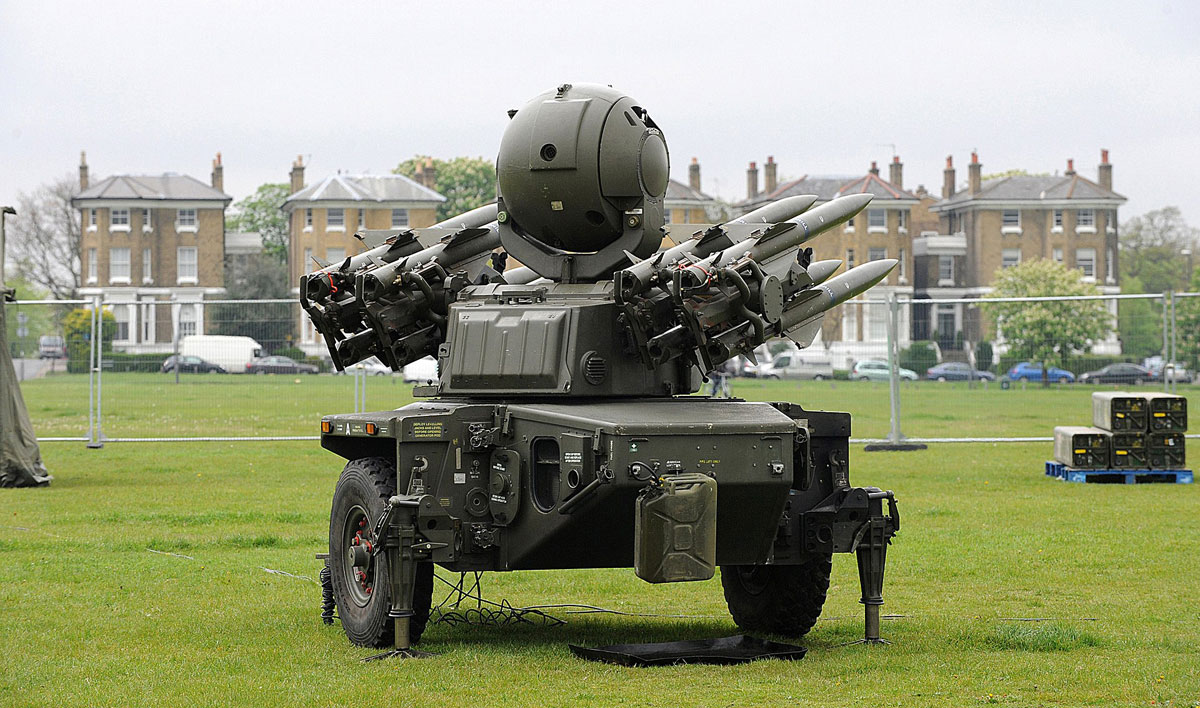
Switzerland destroys its weapons instead of giving them to Ukraine
Despite growing international pressure, Switzerland is instead destroying older air defense systems that it has decommissioned. The country claims that sending weapons to a warring party would violate its historical neutrality policy.
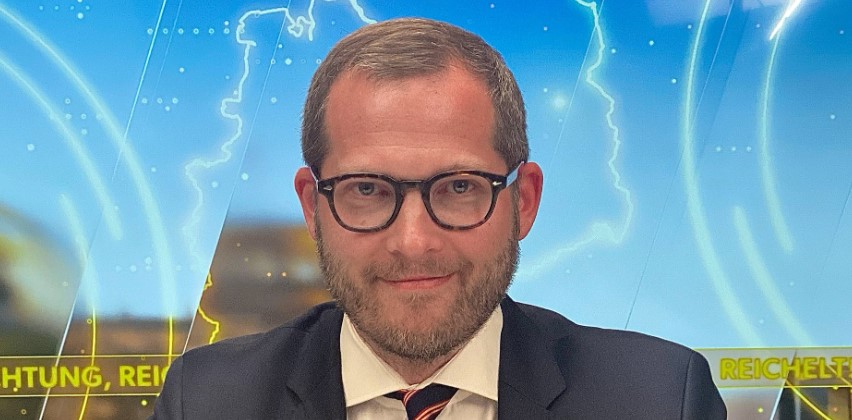
Food, energy, housing: True German inflation is 56 percent
BerlinPrices are skyrocketing and we are all getting poorer - everyone feels the price shock, but in statistics it shows up much smaller. Official inflation figures are around 10 percent. But many citizens notice in their everyday life: Prices are rising - in the supermarket, at the gas station - much faster.
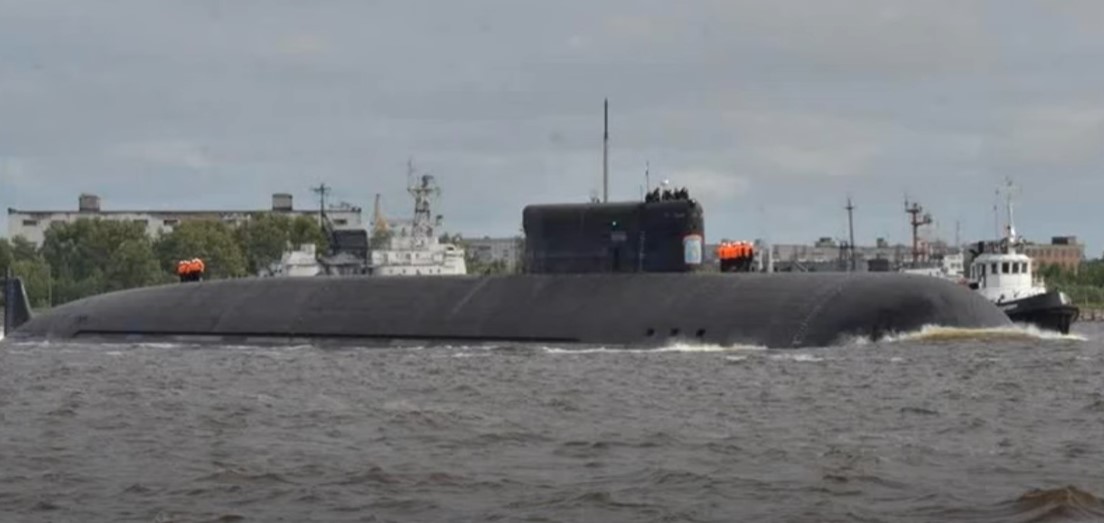
Arms race in the deep: ‘Seabed Warfare’
An article published in issue 148 (July-August 2022) of the German military journal Deutschen Militärzeitschrift (DMZ), examined underwater warfare in the 21st century and its importance for geopolitical and security policy. Due to the current developments surrounding the acts of sabotage on the Baltic Sea pipelines Nord Stream 1 and 2, this article has gained unexpected prominence.
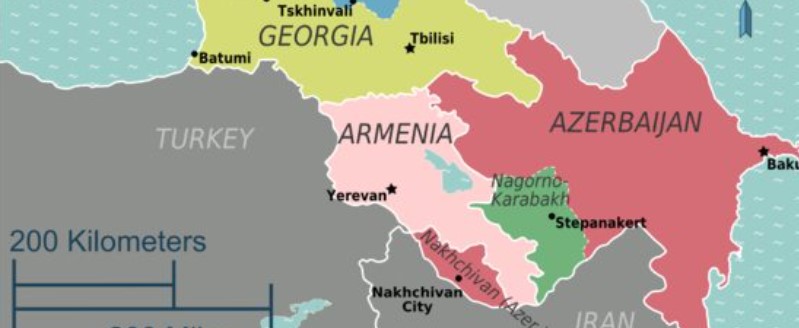
American Armenians call for an immediate end to Azeri aggression
Armenian Americans for Human Rights (AAHR), founded in the United States in 2018, issued a press release issued on the dire situation in Nagorno-Karabagh, strongly condemning the latest aggression by Azerbaijan against the Republic of Artsakh (Nagorno-Karabagh) and the Republic of Armenia.

Oil wars: Iran responds to British seizure of oil tanker
When the British military seized an Iranian oil tanker, its Marine commandos came on board the vessel by helicopter. Iran has now demonstrated that it can act on the same operational level as Britain, says a military analyst.

Visit to Syria: Will the refugees in Europe return?
SYRIASyria is now safe except for one province that remains to be liberated, and former refugees are needed to help rebuild the country. That was the message received by Mikael Jansson, Swedish Member of Parliament and candidate for nationalist Alternative for Sweden, when he visited Syria last week. Reporters from Free West Media were included in the official delegation and interviewed several political and religious leaders as well as returning refugees.

‘US may be wrong on number of Russian nuclear warheads’
US calculations of the number of nuclear warheads stored in Russia may be wrong by an order of thousands, said former Secretary of Defense William Perry. Washington does not have accurate information about it, he says.

Head of State removed in Lugansk – his team accused of collaboration with Ukraine
The Head of State of self-proclaimed Lugansk People’s Republic (LPR) Igor Plotnitsky (pictured) has been forced to resign. His duties have been taken over by Head of the State Security Bureau Leonid Pasechnik. On November 21, armored vehicles rolled into Lugansk at the order of the Ministry of Interior and secured key buildings, assisted by a contingent sent by the neighboring Donetsk People’s Republic (DPR). They proceeded in arresting associates of the Head of State Igor Plotnitsky, accusing them of being agents sent by Kiev. Free West Media's reporter was on site.





